How does mental health affect teens? Teen mental health plays a vital role in their overall health and has a big impact on how they develop emotionally, socially, and academically. Rapid biological and environmental changes that can have an impact on mental health occur during adolescence.
The article looks at the numerous ways that teens,mental health is impacted. Including the difficulties they may face, the significance of recognizing their emotional health, and the potential long-term impacts of creating a supportive environment for mental health during this critical developmental stage.
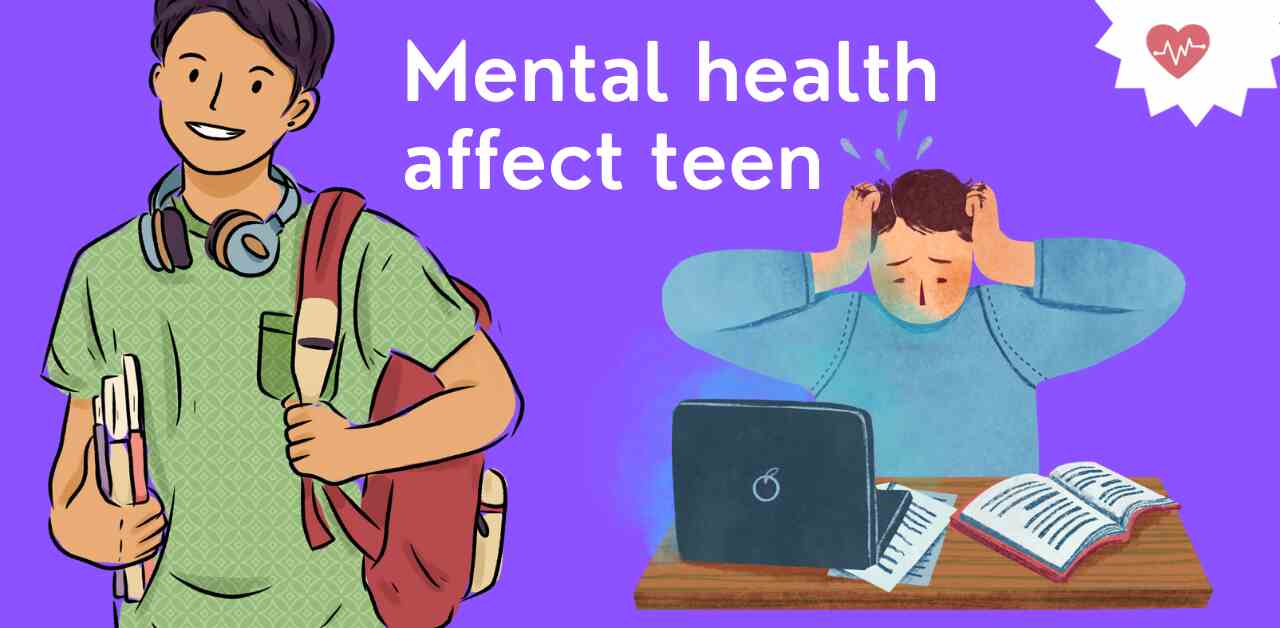
Parents challenges with teen mental health:
- Parents often lack the knowledge and resources to help teens with mental health issues.
- Behaviors symptomatic of mental illness may be mistaken for willfulness or typical teen angst.
Important for teen mental health:
- There is no official national teen mental health day, but choosing a day to raise awareness is encouraged.
- Prioritizing teen mental health is crucial as they navigate the challenges of adolescence.
- National Teen Mental Health Day is celebrated on March 2nd.
Important aspects of mental health for teens:
- The teenage years involve physical and emotional changes. And mental health issues may surface.
- Teens may exhibit irritability or irrational behavior, making it difficult for parents to understand.
- Reluctance to open up about mental health issues fear of acknowledging a mental illness.
- Mental health disorders can complicate an already challenging time and affect school performance.
- Some teens may turn to drugs and school as a form of self-medication. Leading to legal and physical problems.
Common mental health disorders in teens:
Teenagers can experience a wide range of mental health issues, and the symptoms and patterns can vary depending on the specific condition. It’s important to note that adolescence is a critical period of development, and many factors, including hormonal changes, academic stress, social pressures, and family dynamics, can contribute to mental health challenges in teens. Here are some common mental health issues affecting teens and their associated symptoms:
Generalized anxiety disorder: Excessive worry disproportionate to situations.
Posttraumatic stress disorder (PTSD): Extreme emotional reactions due to current or past trauma.
Depression:
- Persistent sad, irritable, or empty mood
- Loss of interest in or pleasure in activities once enjoyed
- Changes in appetite or weight
- Sleep disturbances (insomnia or hypersomnia)
- Fatigue or loss of energy
- Feelings of worthlessness or excessive guilt
- Difficulty concentrating or making decisions
- Thoughts of death or suicide
Anxiety disorders:
- Excessive worrying or fearfulness.
- Restlessness or feeling on edge.
- Fatigue.
- Difficulty concentrating.
- Irritability.
- Muscle tension.
- Sleep disturbances.
- Avoidance of certain situations or activities.
(ADHD) Attention deficit or hyperactivity disorder:
- Inattention (e.g., difficulty sustaining attention, careless mistakes)
- Hyperactivity (e.g., fidgeting, difficulty staying seated)
- Impulsivity (e.g., difficulty waiting for a turn, interrupting others)
- Difficulty organizing tasks and activities
Eating disorder:
- Anorexia nervosa: intense fear of gaining weight, distorted body image, extreme thinness
Substance Abuse:
- Changes in social activities and friendships.
- lower in academic performance.
- Ignore personal appearance and hygiene.
- Increased secrecy or lying about activities.
- Changes in mood and behavior.
How do we address teen mental health?
- Communication tools: provide teens with tools to talk about their emotions and challenges. emphasize the importance of open communication with peers.
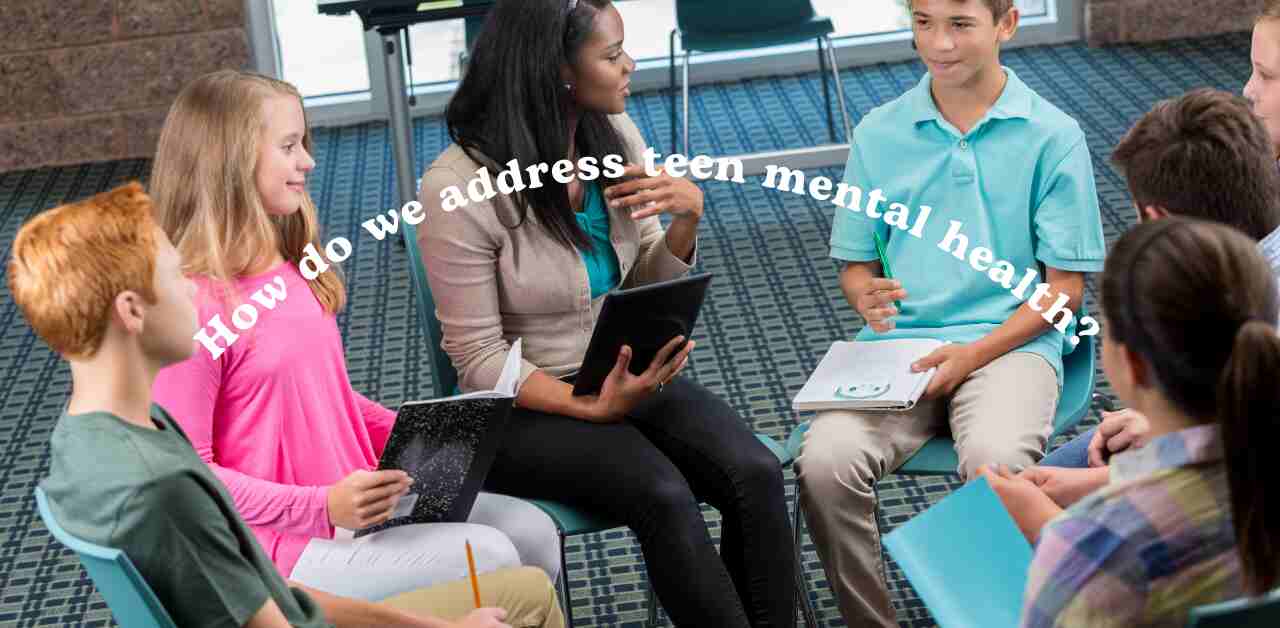
- Peers support: acknowledge that teens often confide in friends rather than adults. Encourage teens to be supportive when their friends reach out to them.
- Normalizing emotion: it was discussed that it’s okay for teens to feel sad, angry, alone, or frustrated. emphasize the normalcy of these emotions during adolescence.
- Early warning signs: Stress the importance of recognizing early warning signs of persistent problems. Highlight the significance of addressing the issue promptly.
- Teen mental health first aid: Promote programs like teen mental health first aid for high school students. And educate students on identifying, understanding, and responding to mental health signs among their peers.
- Involving trusted adults: Teach teens when and how to involve a trusted adult in mental health concerns. And emphasize the appropriateness of seeking help from adults when necessary.
- Recovery and treatment: Convey that many teens with mental health challenges can recover with proper care. And stress the importance of taking the first step by seeking help.
Seeking professional help:
- Parents concerned about their teens behavior should consult a mental health professional.
- Understanding the specific mental health disorder is crucial for developing an effective treatment plan.
National Mental Health Day benefits:
- Raises awareness about mental illness and the importance of teen mental health.
- provides an opportunity to discover and access support resources such as counseling and therapy.
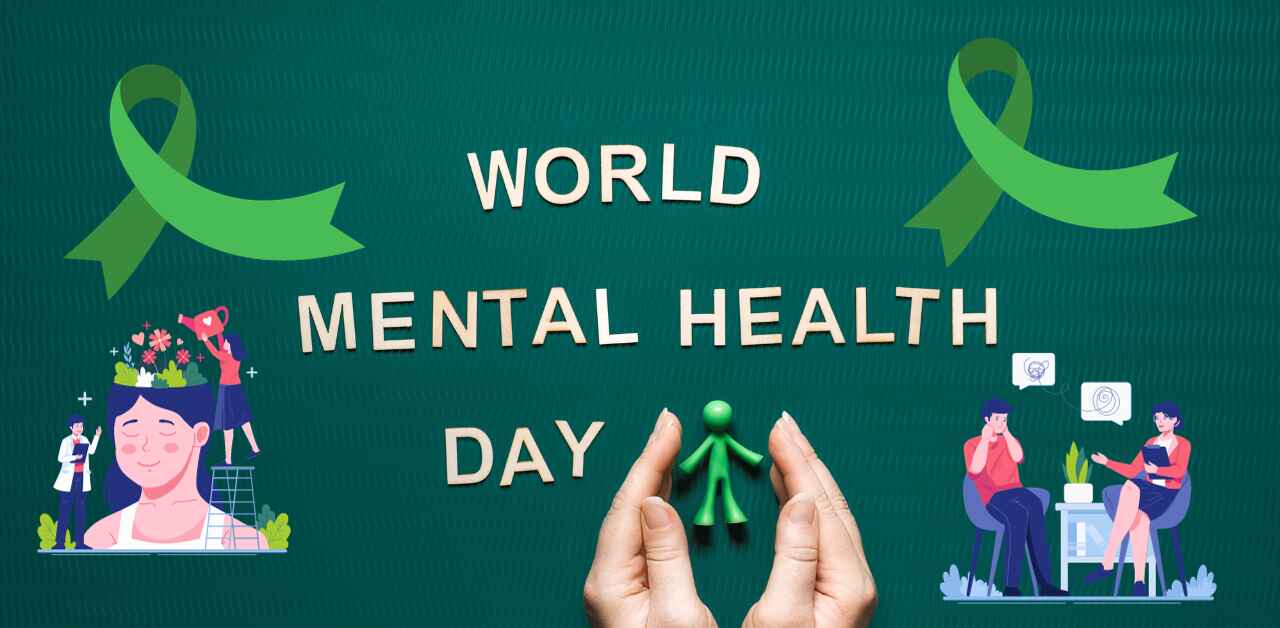
- Highlights organizations like “Destinations for Teens” offering mental health treatment. Substances about treatment, therapeutic services, and educational programs.
Teen mental health first aid:
Teen mental health first aid is a program designed for high school students in grades 10 to 12. It equips teens with the knowledge and skills to identify Understand and respond to signs of mental health problems or crises among their friends.
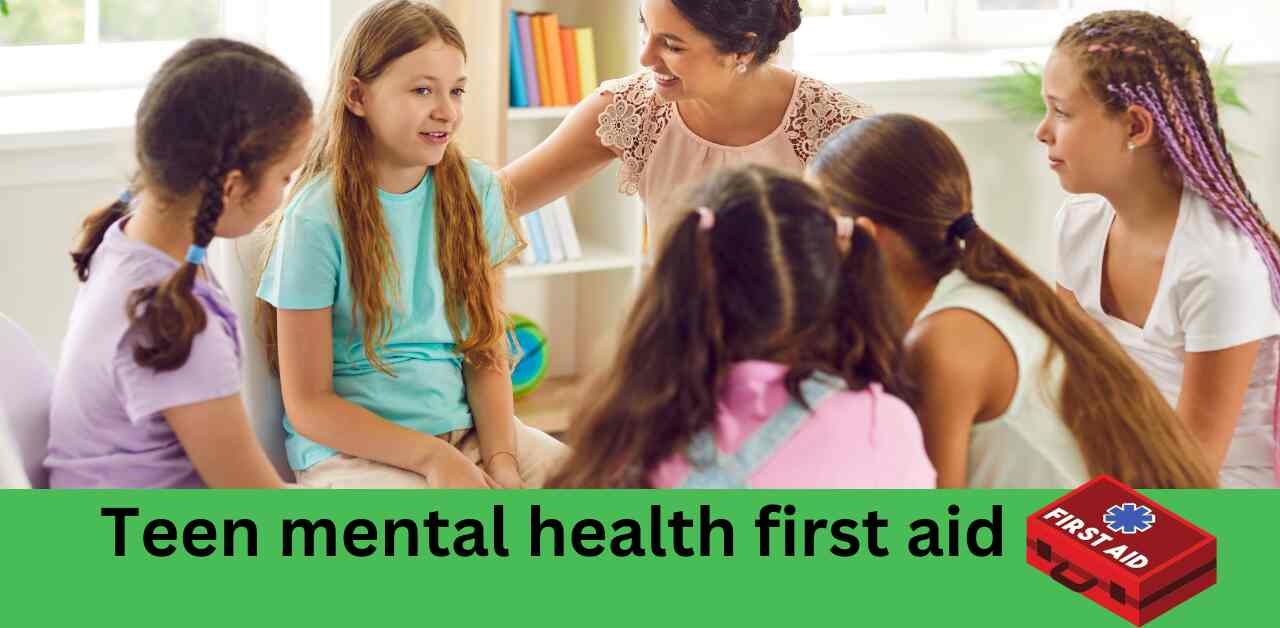
The program emphasizes the importance of involving a trusted adult when necessary. By providing teens with the tools to support their peers and encouraging timely intervention. Teen mental health first aid aims to contribute to the overall well-being of adolescents and promote a proactive approach to mental health.
Conclusion:
In conclusion, the mental health of adolescents plays a vital role in their overall development, affecting emotional, social, and academic aspects. The article highlights the various ways in which teens’ mental health can be impacted, addresses the challenges parents face, emphasizes the importance of recognizing emotional well-being, and addresses this crisis. may shed light on the potential long-term effects of fostering a supportive environment during the developmental stage.
Here are some frequently asked questions related to how mental health affects teens.
Students mental health can have a major effect on their performance in a number of ways, including how well they do academically. Interact with others and feel overall. Mental health problems have a wide range of effects on pupils, including social, emotional, and mental health issues.
How does mental health affect students?
Academic success:
- Concentration and focus: Problems with mental health can make it difficult for students to focus and concentrate on their academic work. Which can hinder their learning and performance.
- Memory and retention: It may be difficult for students to take in and remember material when they are suffering from conditions like anxiety or depression that affect memory and understanding retention.
- Motivation and engagement: Mental health issues may lead a student to become less motivated and engaged in their academic work, which may result in a drop in their general academic performance.
How does mental health affect social life?
Social life:
- Isolation and withdrawal: Students with mental health issues may withdraw from social interactions and activities. Which might negatively affect their relationships with others.
- Communication challenges: Social anxiety and other associated mental illnesses can make it difficult for people to communicate effectively. Which take part in group activities.
- Discrimination and stigma: Students who struggle with mental health disorders may face discrimination and stigma. Which can make their social challenges greater and make it harder for them to feel like they belong.
How does anxiety affect students?
Physical symptoms: headaches, nausea, and fatigue are a few examples of physical symptoms of anxiety that can make it more difficult for students to go about their daily activities. And students who experience social anxiety may find it difficult to interact with others in groups, make new friends, or take part in class discussions.

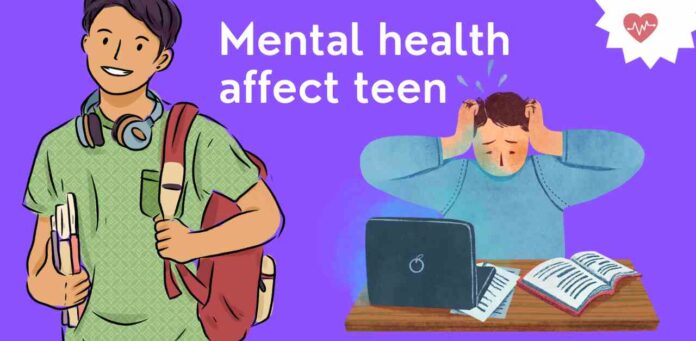



[…] copping strategies can be helpful for maintaining mental health in the busy trip of […]
[…] of opium can lead to addiction, physical and mental health issues, and legal consequences. Long-term use can result in dependence and withdrawal […]